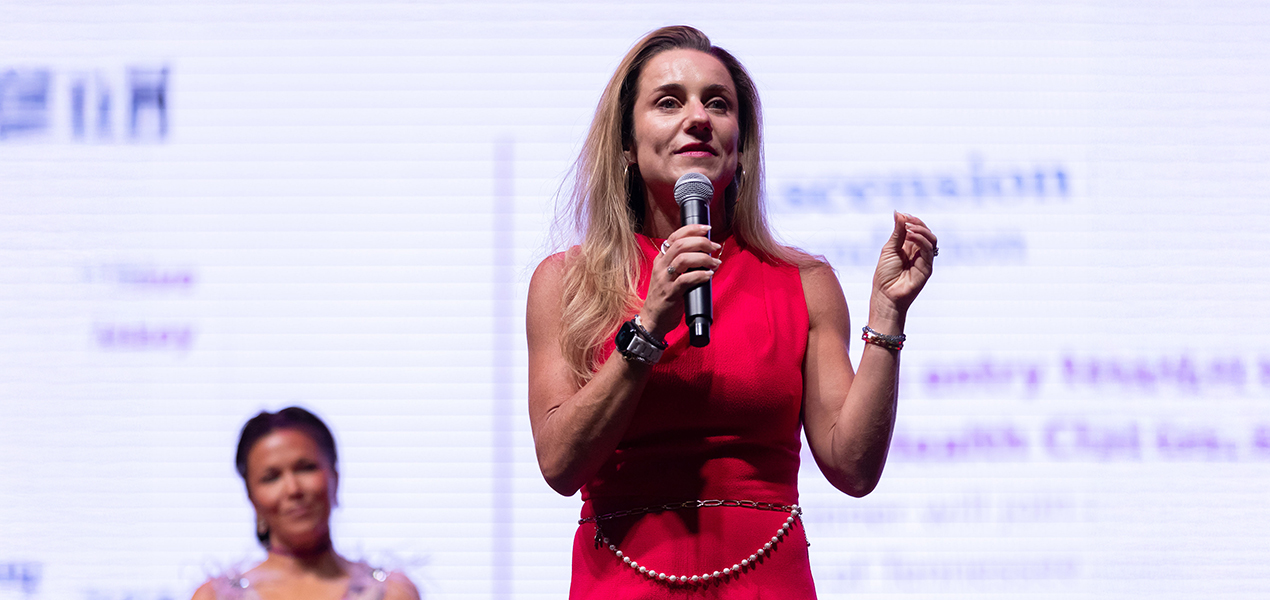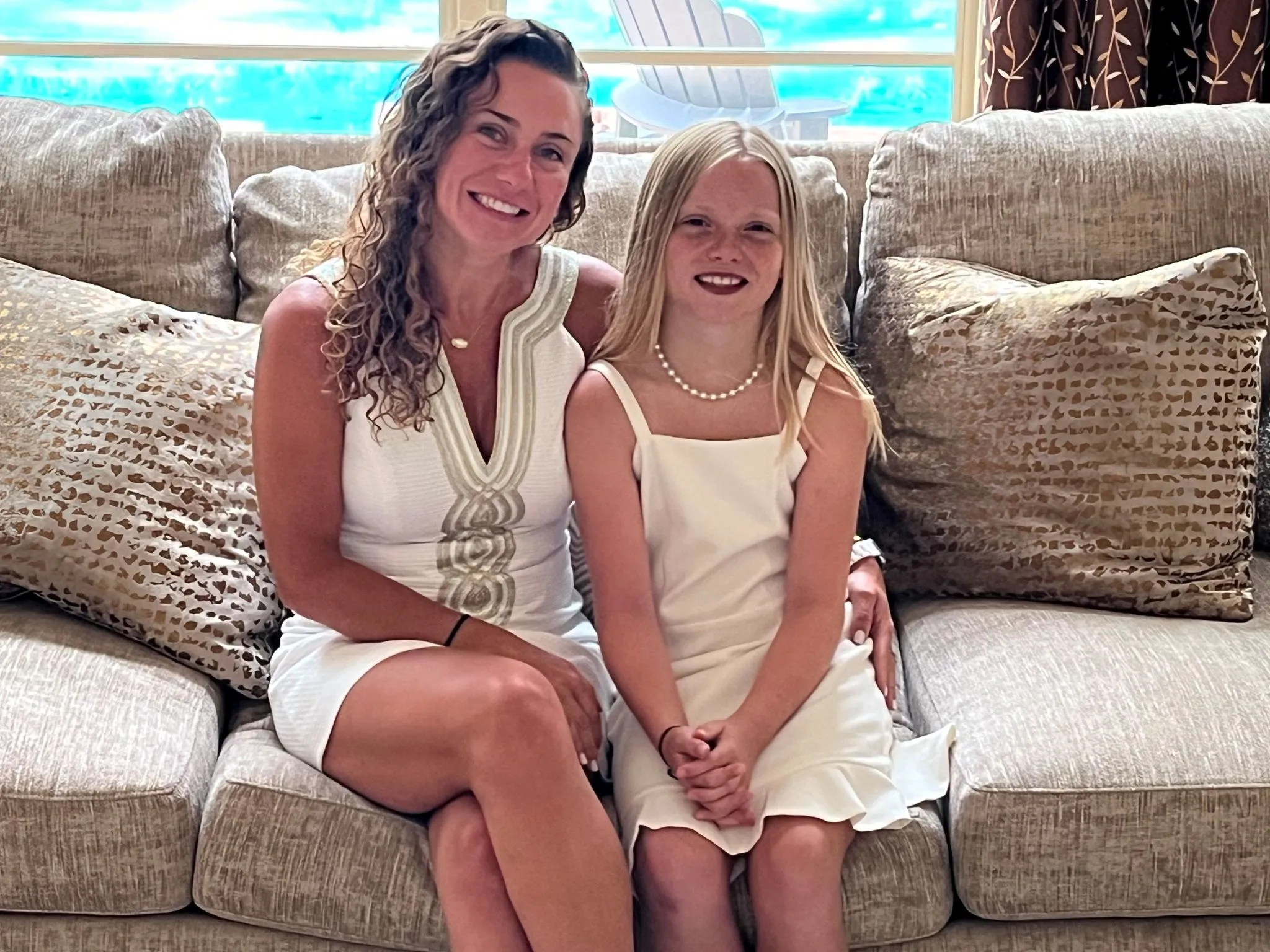One Informed Conversation at a Time, Women Facing Fibroids and Heavy Periods are Discovering That Better is Possible

“We believe that women deserve to know more about their bodies, have better access to information and should have the most advanced treatment options for conditions that alter their quality of life,” said Mary Byerly at the first-ever HerHealth360 event in Nashville, Tennessee, which brought together more than 350 women to talk about healthcare.
“It’s just part of being a woman.”
It’s a simple but inherently dismissive phrase, and one that has surfaced time and again in conversations with women whose lives have been affected by heavy periods and fibroids. They’ve heard it from their family members, their friends — and sometimes even from their doctors and healthcare providers.
Women’s health has long been overshadowed and underserved. And when it comes to conditions like heavy periods and fibroids, awareness of what’s “normal” and what isn’t, as well as the treatments available, has historically been low. The impact? Millions of women living with debilitating pain, excessive bleeding and other symptoms that severely impact their quality of life.
“What we’ve found through surveys, focus groups and informal conversations is that so many women who are having symptoms of fibroids or abnormal uterine bleeding don’t necessarily realize what they’re experiencing is abnormal — and that there are treatments that can help their situation get better,” said Mary Byerly, Vice President of Marketing, Surgical Solutions.
Another finding from discussions with physicians is that oftentimes they’ll default to hysterectomy, unaware of less-invasive alternatives that may avoid the risks and recovery time associated with major surgery.
Born out of this research came “Better Is Possible,” a campaign focused on raising awareness among providers and patients of the ongoing innovation in procedures that address conditions like fibroids and abnormal uterine bleeding, including those that are minimally invasive, nonhormonal and preserve the uterus.
Quote from Mary Byerly
“The phrase ‘Better Is Possible’ resonated with both patients and clinicians. For women, it offered hope that their symptoms — and their quality of life — could improve. For doctors, it became a rallying cry to innovate and provide better care.”
A shift in the conversation
For many women, the last time they talked about their period was when they gave the date of their most recent one during their last doctor’s visit. “We learn about periods in 5th grade and then oftentimes the conversation ends,” said Byerly.
If the topic is introduced in a doctor’s office, often the question asked is along the lines of whether a woman would describe her period as “normal.”
“This is a problem because your definition of ‘normal’ can vary based on what a family member has told you or on what you’ve accepted as ‘normal’ for a very long time — but actually isn’t,” said Byerly. “By rephrasing the question slightly to, ‘Do your periods disrupt your life?’ and making this part of a standard well woman visit — that’s when the conversation changes and we can really understand what’s going on and look at how to treat it.”

Mary and her daughter, Daniella, pose for a photo wearing white to show support as part of Fibroid Awareness Month.
Identifying the problem is a crucial first step, but for many women who have fibroids or heavy periods, this can mark the beginning of a frustrating and difficult to navigate process.
“Many physicians still offer hysterectomy, or complete removal of the uterus, as the only option,” said Byerly. “For some women this could be the best approach; but for others, they are looking for a less-invasive option that isn’t going to keep them out of work or that’s going to allow them to keep their uterus. Better Is Possible is about educating both providers and patients about all the treatments out there.”
“We need to empower women to speak up and demand better care”
At the heart of Better Is Possible is the concept of shared decision-making, a collaborative process where the patient and their healthcare provider work together to select tests, treatments and care plans — balancing the risks and expected outcomes with a patient’s unique preferences and values.
“Fibroids are incredibly common; almost 80% of women will develop them in their lifetime,” Byerly said. “But many women who seek treatment are told their only option is a hysterectomy. That’s simply not true.”
Radiofrequency ablation procedures, such as the Sonata® and Acessa® systems, use heat to treat fibroids. Depending on fibroid symptoms, size and location, the Sonata system offers an incisionless approach through the cervix while the Acessa system provides a minimally invasive, laparoscopic approach to locate and treat fibroids. The MyoSure® device removes fibroids and polyps through hysteroscopy. For heavy periods, the NovaSure® procedure provides a non-hormonal solution, applying heat to remove the endometrial lining of the uterus. Having a diverse set of options allows doctors to tailor treatments to each woman’s unique needs.
Hologic is also working to address the stigma and silence surrounding menstrual periods. Byerly described a recent event where she asked attendees about whether their periods disrupted their lives. One woman broke down in tears, sharing how 28 days of nonstop bleeding had derailed her career and relationships.
“These are deeply personal issues,” Byerly said. “But we can’t normalize suffering. We need to empower women to speak up and demand better care.”
Investing in women’s health means investing in communities
Hologic is also tackling inequities in education and awareness around abnormal uterine bleeding and fibroids. Through partnerships with primary care providers and OB-GYNs, the company is working to ensure that more women receive earlier diagnoses and treatment. A pilot program launching this month will help to educate primary care doctors to recognize symptoms of fibroids and abnormal uterine bleeding and refer patients to gynecologists.
“Women make up more than 50% of the population. We’re not a niche market,” Byerly said. “Women also make the majority of healthcare decisions for their families. If we’re not investing in women’s health, we’re failing not just women — but entire communities.”
As Hologic continues to expand its efforts through campaigns like Better Is Possible, the company remains steadfast in its mission to transform women’s health.
“Women deserve better,” Byerly said. “And at Hologic, we’re committed to making that a reality.”
For more information, visit betterispossible.com.
MISC-10838 © 2025 Hologic, Inc. All rights reserved. Hologic, Acessa, MyoSure, NovaSure, Sonata, and associated logos are trademarks and/or registered trademarks of Hologic, Inc. and/or its subsidiaries in the United States and/or other countries. All other trademarks are the property of their respective owners.
The content in this piece is for informational purposes only and is not intended to be medical advice. Please contact your medical professional for specific advice regarding your health and treatment. This information is not intended as a product solicitation or promotion where such activities are prohibited. Because Hologic materials are distributed through websites, eBroadcasts and tradeshows, it is not always possible to control where such materials appear. For specific information on what products may be available in a particular country, please write to womenshealth@hologic.com.

